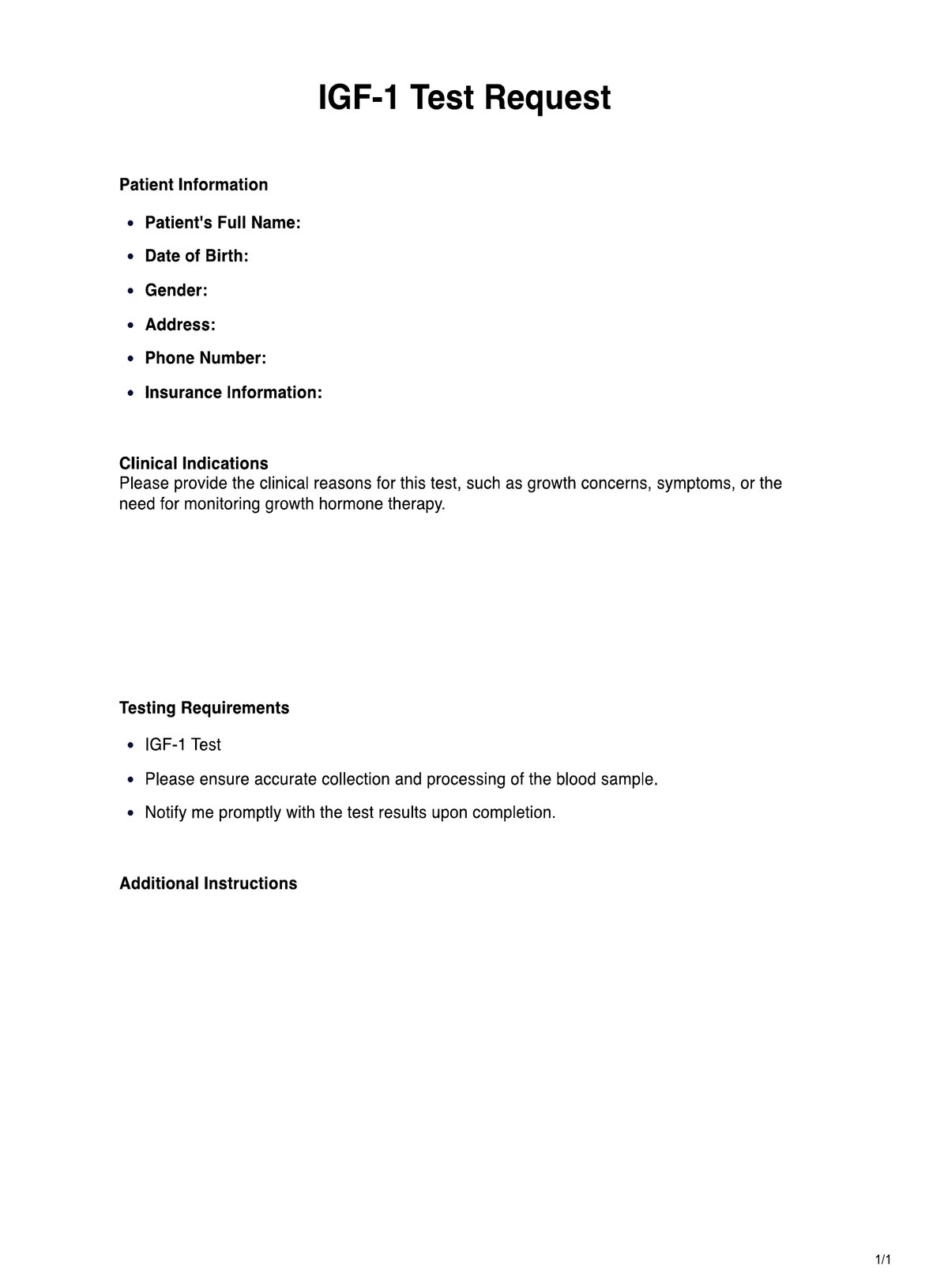IGF-1 Tests are typically requested by healthcare professionals, including pediatricians, endocrinologists, primary care physicians, and individuals concerned about their health.

Get accurate IGF-1 test results for growth assessment—streamlined, reliable testing. Your health is our priority.
IGF-1 Tests are typically requested by healthcare professionals, including pediatricians, endocrinologists, primary care physicians, and individuals concerned about their health.
IGF-1 Tests are used to assess growth and hormone-related concerns in children and adults, monitor growth hormone therapy, evaluate overall health, and in sports to detect performance-enhancing substances.
The test involves a blood draw, which is processed in a laboratory. It can also be done with at-home test kits, collecting a blood sample and sending it to a lab for analysis.
EHR and practice management software
*No credit card required
Free
$0/usd
Unlimited clients
Telehealth
1GB of storage
Client portal text
Automated billing and online payments